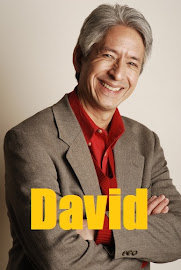For me, Measure 91, which would legalize possession,
manufacture, and sale of moderate amounts of marijuana for recreational use in
Oregon, is not as easy a call as 92 . . . or as it would have been ten or
twenty years ago.
I’m no great fan of marijuana. I was exposed to it fairly
early, as a high school freshman or sophomore. Basically, I succumbed to the
blandishments of a couple of older girls when we were away from school and home
at a speech tournament (on the streets of the state capital, Salem, I believe).
In the 40 years since, the number of times I’ve smoked pot could be counted on
the fingers of my two hands.
Just like the first time, partaking -- whether it was with a
friend, smoking dope supplied by U.S. Marines in Mauretania; at the foot of the
Jerry Garcia statue at McMenamins Edgefield with some other longtime Gentle
Giant fans; or most recently, before attending a Laurie Anderson concert -- had
more to do with enjoying the company I was with than any interest in getting
high.








